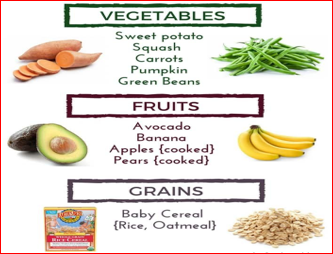Poor diet is a significant cause of death in the US. The New York State Department of Health Division of Nutrition (NYSDF) aims at establishing a conducive environment that empowers residents to adopt healthy eating habits and physical activity. The NYSDF provides WIC foods for mothers and baby formula feeding, aimed at promoting the nutritional health of the mother and child. Adopting healthy feeding practices is crucial to encourage the growth and development of infants and babies, especially those with special needs.
Current Nutritional Practices
Breastfeeding exclusively for six months, and continuing with it while introducing complementary foods up to 12 months or older is a primary nutritional practice. If the mother is a career woman, she may pump breastmilk for the baby. Pumping should begin weeks before resuming work to give the baby time to get used to feeding on a bottle. Breastfeeding provides children with ideal nutrition while supporting growth and development. It protects the baby from short- and long-term diseases.

The other practice is introducing solid foods at six months. At this age, the infant shows signs of developmental readiness, including head control, reduced tongue thrusting, and consumes about 32 ounces of breastmilk or formula per day. WIC provides breastfeeding mothers with infant formula. When infants are six months of age, mothers receive iron-fortified cereal, baby food, fruits, and vegetables, all in amounts that meet the baby’s individual needs (NYSDH, n.d.). Mothers are encouraged to eat WIC foods to have the strength to take care of the growing baby.

Activities for Promoting Healthy Eating
Food presentation is a primary activity of promoting healthy eating. Present small portions of the novel and non-preferred foods. The goal is to avoid making the child overwhelmed, so the plate should not be filled with new food. For instance, put a single pea on the plate, and increase the amount slowly as the child becomes more accepting of fresh food. The parent should also provide choices of novel and non-preferred foods (Vandeweghe et al., 2016). Allowing the child some level of control over the food they consume can help them adopt healthy eating.

The other strategy is developing a rewards system for encouraging healthy eating. Selective eaters are usually demotivated to have a more extensive food repertoire. A parent should consider reinforcing trying new foods by including extra electronics time after the meal or simply praising them for finishing their meals (Dwyer, 2018). Celebrating the success of appropriate mealtime behavior such as taking a bite of new food can encourage the child.
Children with an autism spectrum disorder, for instance, may negatively react to particular texture, taste, or colors. Those with Downs Syndrome tend to prefer softer food due to swallowing difficulties (Polfuss et al., 2017). In this case, the parent can consider food supplements or giving homemade pureed food to advance the texture. Parents should limit the children’s experiences with processed foods to develop a taste for fresh foods. They can consider making shopping interesting for children by having them choose preferred fruits or healthy snack options, for example, those with low saturated fats or higher fiber content.

In conclusion, diet is a critical consideration in promoting the growth and development of children. It is the responsibility of parents to ensure their kids take a balanced diet for their physical wellbeing. A recommendation is to engage with medical practitioners to know the health necessities of the child, especially with special needs.
References
Dwyer, J. T. (2018). The feeding infants and toddlers study (FITS) 2016: Moving forward. The Journal of Nutrition, 148(suppl_3), 1575S−1580S.
New York State Department of Health. (n.d.). WIC foods for mom and baby formula feeding.
Polfuss, M., Simpson, P., Neff Greenley, R., Zhang, L., & Sawin, K. J. (2017). Parental feeding behaviors and weight-related concerns in children with special needs. Western Journal of Nursing Research, 39(8), 1070−1093.
Vandeweghe, L., Moens, E., Braet, C., Van Lippevelde, W., Vervoort, L., & Verbeken, S. (2016). Perceived effective and feasible strategies to promote healthy eating in young children: Focus groups with parents, family child care providers and daycare assistants. BMC Public Health, 16(1), 1045.